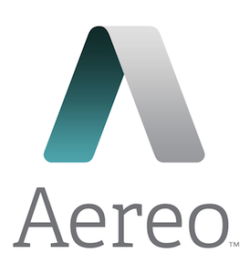 WASHINGTON (CNS) — When one breaks it down, this start-up business called Aereo had been offering its television retransmission service in only 11 metropolitan areas by the time the Supreme Court, in a 6-3 decision June 25, ruled the manner of its retransmission unconstitutional — at least not without paying a fee to the networks whose programming Aereo transmitted.
WASHINGTON (CNS) — When one breaks it down, this start-up business called Aereo had been offering its television retransmission service in only 11 metropolitan areas by the time the Supreme Court, in a 6-3 decision June 25, ruled the manner of its retransmission unconstitutional — at least not without paying a fee to the networks whose programming Aereo transmitted.
That being said, one can ask what makes it such a big deal.
There are at least a few ways that can be answered.
One way is TV viewers’ desire to “cut the cord” and not be subject to relentlessly increasing cable TV charges. Aereo, by charging $8 to $12 a month for its service, offered an alternative.
Another way is the technology used by Aereo, and the implications the high court’s ruling holds for “cloud computing.”
[hotblock]
A third way is in who gets to choose what networks, and what programs on those networks, can be accessed.
Aereo provided an opportunity for “more consumer choices, sovereignty, and control over what they want to watch and to whom and how much they want to pay,” Gene Kimmelman, president of public interest group Public Knowledge, told The Washington Post. But it’s pretty much in past tense because, absent a Supreme Court victory, Aereo had no backup plan.
“This (ruling) is not going to be a comfort to cord cutters,” James Grimmelmann, a University of Maryland law professor who co-wrote an amicus brief in favor of Aereo, told the Verge, a technology website. “It is quite clear that Aereo and services like it can’t operate.”
Part of that is based on the technology used by Aereo. It collected signals from the public airwaves and waited for a subscriber to send a message asking Aereo to relay a particular program for viewing and potential recording. Using a dime-sized antenna that looked like an enlarged computer chip, the viewer then got that signal back on a several-seconds-delayed basis from Aereo’s servers, which stored all of this programming in the cloud.
The six-justice majority said in its ruling that its decision was not intended to apply to other means of cloud computing, which almost certainly stores other copyrighted works, just as Aereo has done with the copyrighted TV programming, but, armed with this ruling, other copyright holders are nearly just as certain to test that, filing suits seeking payment from other cloud-storage systems for holding on to copyright material — like music for one — without paying proper compensation.
When it comes to the proper compensation, those networks with popular programs are already receiving retransmission fees from cable providers, which is helping to drive up the prices of the monthly cable bill. There’s nothing wrong on its face when ESPN asks for retransmission fees since it holds the rights to a wide array of pro and college sports. But ESPN also holds up cable operators when it demands that a fistful of ESPN-related channels occupy the precious bandwidth on a local cable system.
That leaves other cable outlets in the lurch if they don’t have superior programming or high ratings. The Hallmark Channel, when it got started, was bold upfront a dozen years ago when it said it would pay cable operators to carry its family-friendly programming. And there’s no regulation to stop someone who’s had to pay hefty fees from extracting big fees from a littler fish in the pond. And some may not be able to pay the price.
The full implications of the Supreme Court’s ruling in ABC vs. Aereo are still being analyzed by those most impacted by the ruling.
But it is telling to read the entirety of the June 25 statement of ABC and ESPN’s owner, the Walt Disney Co., reacting to the ruling: “We’re gratified the court upheld important copyright principles that help ensure that the high-quality creative content consumers expect and demand is protected and incentivized.”
PREVIOUS: U.N. official, panels address issue of torture at Washington conference
NEXT: Massachusetts pro-life sidewalk counselors applaud court’s decision



Share this story